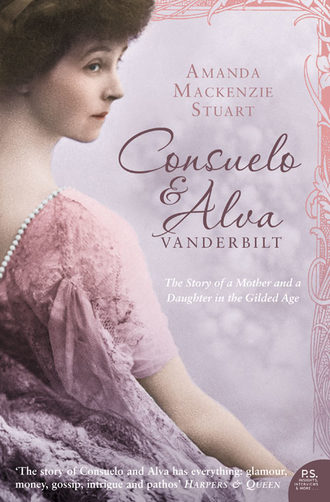Consuelo and Alva Vanderbilt: The Story of a Mother and a Daughter in the ‘Gilded Age’

Полная версия
Consuelo and Alva Vanderbilt: The Story of a Mother and a Daughter in the ‘Gilded Age’
Настройки чтения
Размер шрифта
Высота строк
Поля
Конец ознакомительного фрагмента
Купить и скачать всю книгу
